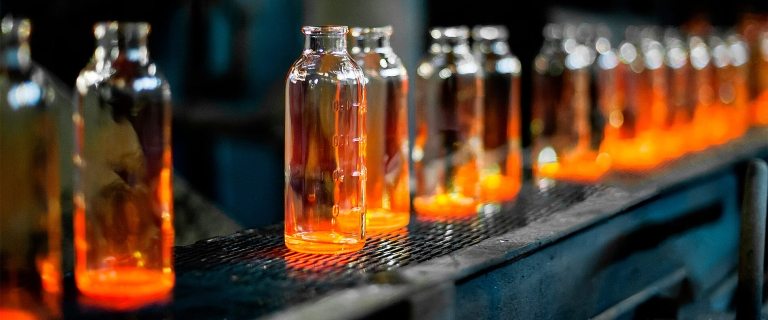Supplier of Soda Ash for Glass Production From Turkey

Introduction
Sodium carbonate or Soda Ash chemically known as Na₂CO₃, is one of the prime requirements in the glass-manufacturing industry. As a flux, this compound lowers the melting point of SiO₂, enabling the manufacture of glass at reduced temperatures. This efficiency minimizes energy consumption while ensuring superior quality in the final product.
Properties of Soda Ash
Soda ash is a white, odorless powder that is soluble in water. Its properties make it an essential component in glass manufacturing:
- Fluxing Agent: Soda ash lowers the melting point of silica, which is crucial for glass formation. The typical melting point of silica is around 1700°C, but when combined with soda ash, it can be reduced to approximately 1200-1400°C.
- pH Regulator: Soda ash helps maintain the desired pH levels in the glass melt. This control is vital for achieving the desired physical and chemical properties of the final glass product.
- Reactivity: As a reactive compound, soda ash can interact with other materials in the glass batch, promoting optimal fusion and forming a homogeneous melt.
- Low Viscosity: The presence of soda ash reduces the viscosity of the molten glass, facilitating easier shaping and molding processes.
Applications of Soda Ash in Glass Manufacturing
1. Flat Glass Production
Soda ash is an essential part of the manufacturing process for flat glass, which goes into everything from windows and doors to architectural facades. The combination of soda ash with silica sand and limestone in a manufacturing process produces uniform, durable sheets of glass. Its addition lowers the melting temperature, improving efficiency and product quality.
2. Container Glass Production
Soda ash is utilized in the manufacture of glass bottles, jars, and other containers, ensuring clarity, strength, and thermal resistance while reducing energy costs. Because of this, it becomes indispensable in packaging applications where durability and chemical stability are in demand.
3. Fiberglass Manufacturing
Soda ash is also crucial in fiberglass production, which is used in insulation and reinforcement materials. The incorporation of soda ash in the glass composition enhances its durability and thermal resistance, making it suitable for a wide range of applications in the construction and automotive industries.
4. Specialty Glass
For specialty glasses, like borosilicate, used in laboratory equipment and cookware, the reactivity of soda ash with other compounds ensures that specific optical and thermal properties are realized. Its use allows the making of high-performance and durable glass products.

The Glass Manufacturing Process Involving Soda Ash
The glass manufacturing process can be summarized in several key steps:
- Batch Preparation: Raw materials, including silica sand, soda ash, limestone, and other additives, are measured and mixed in precise proportions.
- Melting: The mixed batch is heated in a furnace at high temperatures (typically between 1400-1600°C). The presence of soda ash lowers the melting point, facilitating the fusion of silica.
- Forming: The molten glass is shaped using various forming techniques, such as blowing, pressing, or molding, depending on the type of glass being produced.
- Annealing: After forming, the glass is slowly cooled in an annealing lehr to relieve internal stresses and improve its strength.
- Finishing: The final glass products undergo additional treatments, such as polishing or coating, to enhance their appearance and performance.
Environmental Considerations
The use of soda ash in glass manufacturing also raises important environmental considerations. Soda ash production can generate carbon emissions, particularly if derived from the synthetic process. However, natural sources, such as trona ore, can provide a more sustainable option. Moreover, the glass industry is increasingly focused on recycling practices, with cullet (recycled glass) being incorporated into the production process, which significantly reduces the demand for virgin materials, including soda ash.
Conclusion
Soda ash is an indispensable component of the glass manufacturing industry, influencing not only the production process but also the quality and sustainability of the final products. Its ability to lower melting points, enhance reactivity, and control viscosity makes it a crucial ingredient across various glass applications, from flat glass to specialty glass. As the industry continues to evolve, embracing more sustainable practices and materials, soda ash will remain at the forefront of innovation in glass manufacturing, ensuring that it meets both market demands and environmental standards.
By understanding the role of soda ash in glass production, manufacturers can optimize their processes, improve product quality, and contribute to a more sustainable future for the glass industry.
READ ABOUT (SODA ASH LIGHT)
READ ABOUT (SODA ASH DENSE)

